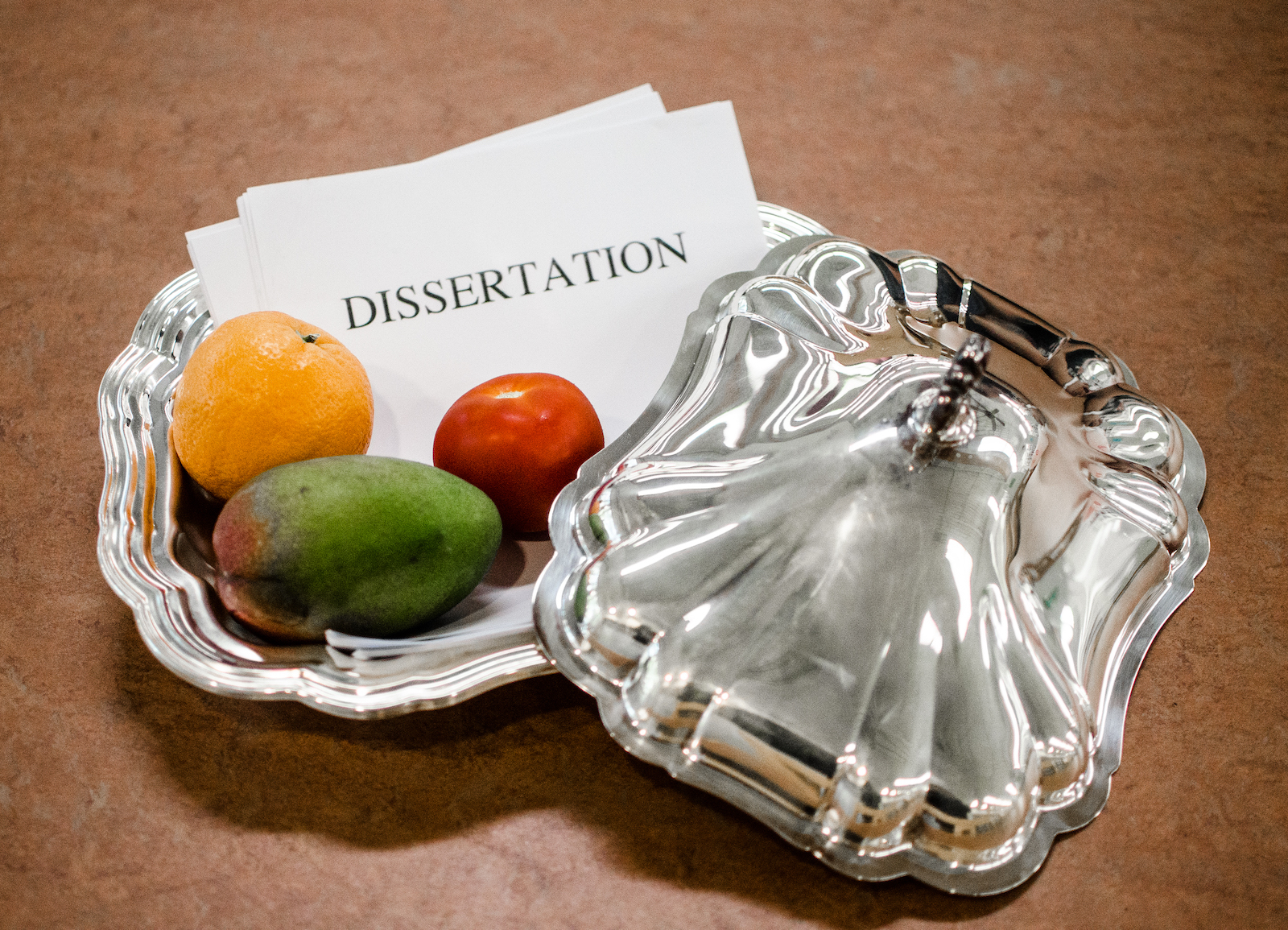Committee votes to end department tradition despite opposition from senior faculty

The psychology department’s executive committee recently voted to officially ban the informal, yet, traditional practice of graduate students providing food for their thesis defense (Kanishka Mehra/Assistant Photo editor)

By Maanas Hemanth Oruganti
Aug. 11, 2019 11:24 p.m.
A UCLA graduate school executive committee passed a policy July 29 preventing graduate students from catering food at their thesis defenses.
The psychology department’s executive committee voted to end the tradition of students bringing food to their thesis defenses after a Science Magazine article brought the stresses this tradition caused for students to light, said Anna Lau, head of the UCLA psychology department executive committee and a psychology professor.
“We’ve had indications that (our students) have been stressed out and have been needing more support and we wanted to reduce unnecessary sources of stress for them,” Lau said.
She added while there was never an explicit rule for students to provide food at their thesis defenses, most students felt an obligation to do so, prompting the executive committee to pass this policy.
Lau said some faculty members attempted to eliminate the tradition years ago but could not pass any policy because of heavy resistance from other senior faculty members.
Following the announcement of this new policy, some senior professors in the department spoke out against it, prompting some senior graduate students like Shannon Burns, a social neuroscience graduate student, to respond in support of the policy.
“I was just thinking about some of the responses the senior psychology faculty had given and maybe the professors just don’t know the burden it can be on grad students to cater their own defense,” Burns said.
Kate Wassum, an associate psychology professor, said only a minority of professors spoke out against the policy. Lau added some individual faculty members and students argued that the presence of food at the defense helped create a more casual, friendly atmosphere and diffuse some of the stress and tension students would feel at the event.
Wassum said despite the majority of students disliking the tradition, some individual professors may have believed it to be a positive experience because their students never spoke out against catering their defenses and the occasional student may have given a positive response to the experience.
However, the sentiment of those professors did not warrant how common the tradition became, Lau said.
Burns said some students found it difficult to express their concerns with the issue to the members of their committee due to fear of facing backlash during their thesis defenses.
Students were not likely to express their annoyance or discomfort with the tradition to faculty because of the power dynamic that exists between professors and their students, Wassum said.
“It is often the case that faculty do not hear from students in our department about things that are stressing them out, and we need to change that,” Wassum said. “Students didn’t feel comfortable to talk about it because we didn’t provide a forum for them to express it, removing the burden from the students and placing it on the faculty to provide a safe, anonymous space.”
Lau said the department’s several committees, including the executive committee, seek out student input through representatives from various student organizations such as the Psychology Graduate Students Association.
“In addition, every eight years, every department undergoes a self-study and evaluation by this university and we’re undergoing ours now,” Lau said. “We’ve been analyzing our data from surveys and we’re going to be doing focus groups over the summer to see what improvements we can put in place to help students.”
Wassum said she supported this policy after hearing from students outside of UCLA and her lab about the stress induced by this tradition.
“It’s money that they have to spend, which for me was one of the biggest factors because graduate students aren’t paid that much,” Wassum said. “To ask them to come to the table and also to bring food to faculty who make lots more money than them I thought seemed ridiculous.”
Burns said it was important for the struggles of graduate students to be vocalized because she believed some professors may have forgotten the position of these students.
“It takes time to go pick up the food, and some people don’t have cars so that creates trouble,” Burns said. “There’s just being super stressed out about the dissertation and worrying that if you don’t please these people who are in your committee, they can just derail your academic experience.”
Burns said she personally didn’t face any issues stemming from this tradition during her defense but she had heard many students faced problems with providing their own defense catering
“I was pretty lucky to have an advisor who disliked the tradition, so I still provided food for my defense, but we worked out a system in my lab where a friend went and bought the food my defense, I went out and bought food for hers, and my advisor reimbursed us,” Burns said.
Burns added while the tradition was a longstanding one in the psychology department, that was not the case in some other graduate school departments.
“I know it is a tradition in some departments, like Math,” Burns said. “I’ve heard from other students, like in (political science), they’ve never heard of this tradition, so they don’t do it over there.”
Wassum said she catered her own thesis defense and felt some anxiety with organizing the food and its delivery.
“I had to go through it as a student, and I didn’t love it as a student either,” Wassum said.


